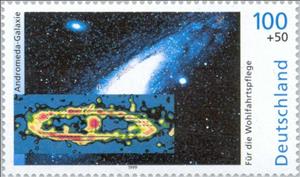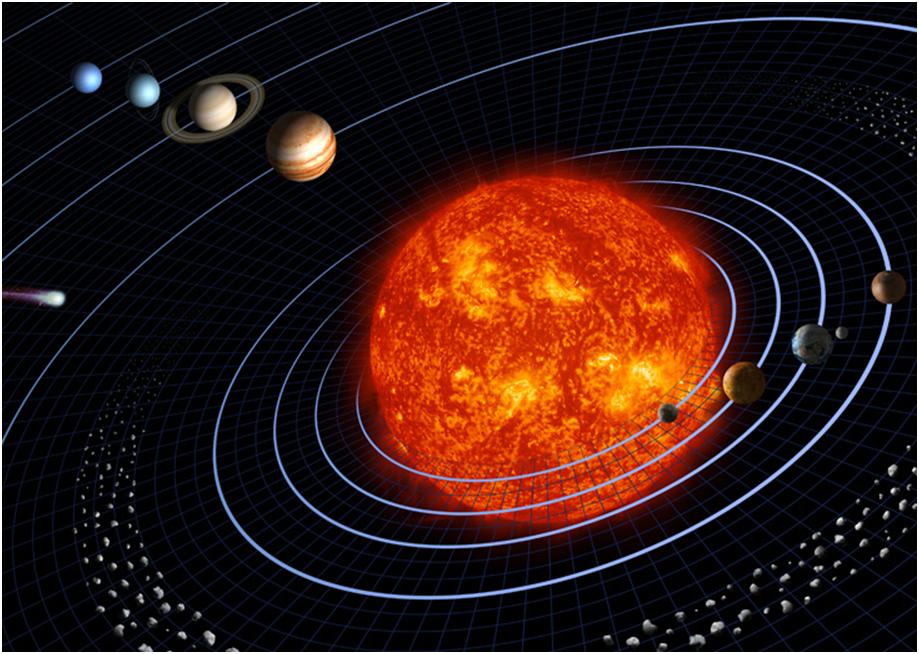Stamp: The Cosmos (Germany, Federal Republic 1999)
The Cosmos (Germany, Federal Republic 1999)
14 October (Germany, Federal Republic ) within release The Cosmos goes into circulation Stamp The Cosmos face value 100+50 German pfennig
| Stamp The Cosmos in catalogues | |
|---|---|
| Michel: | Mi:DE 2077 |
| Yvert et Tellier: | Yt:DE 1909 |
Stamp is horizontal format.
Also in the issue The Cosmos:
- Stamp - The Cosmos face value 100+50;
- Stamp - The Cosmos face value 100+50;
- Stamp - The Cosmos face value 110+50;
- Stamp - The Cosmos face value 110+50;
- Stamp - The Cosmos face value 300+100;
Stamp The Cosmos it reflects the thematic directions:
Celestial bodies or heavenly bodies are objects in space such as the sun, moon, planets, and stars. They form a part of the vast universe we live in and are usually very far from us.
A star is a luminous spheroid of plasma held together by self-gravity. The nearest star to Earth is the Sun. Many other stars are visible to the naked eye at night; their immense distances from Earth make them appear as fixed points of light. The most prominent stars have been categorised into constellations and asterisms, and many of the brightest stars have proper names. Astronomers have assembled star catalogues that identify the known stars and provide standardized stellar designations. The observable universe contains an estimated 1022 to 1024 stars. Only about 4,000 of these stars are visible to the naked eye—all within the Milky Way galaxy.


